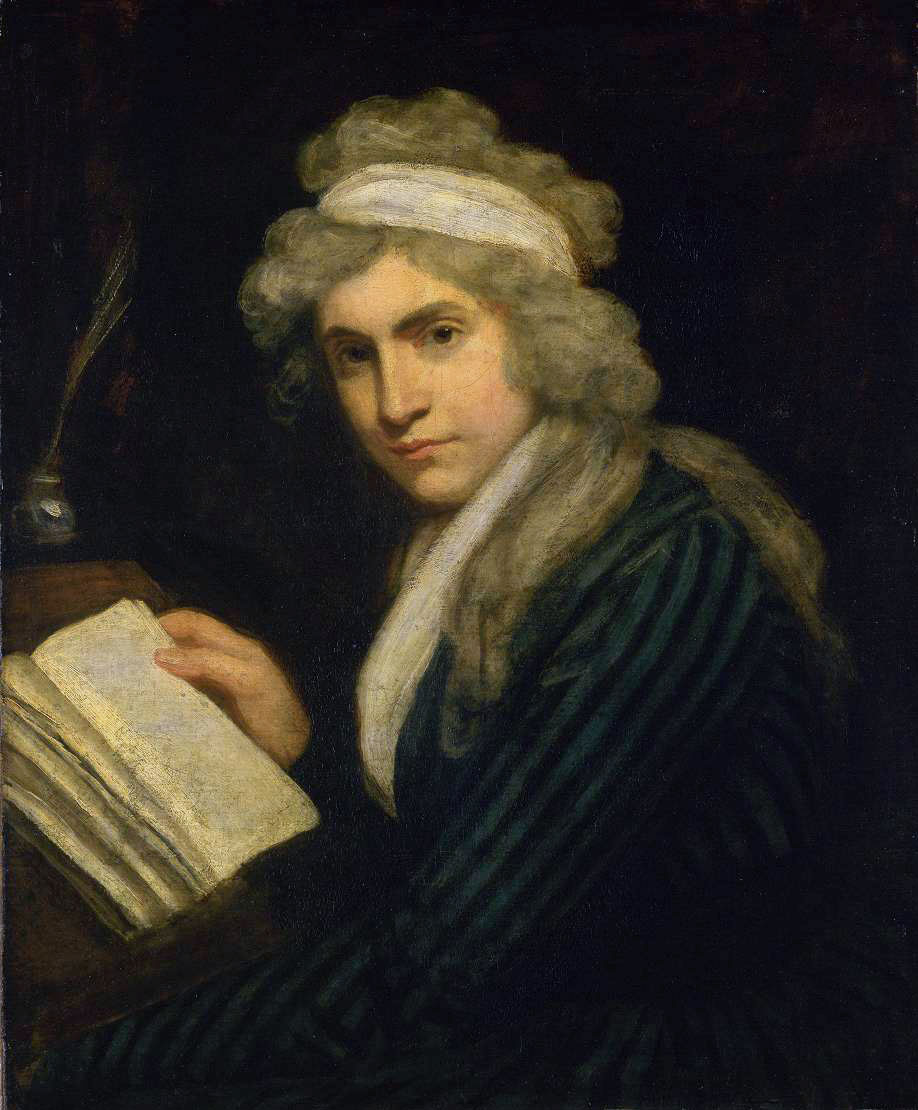Mary Wollstonecraft
"I do not wish for them [women] to have power over men; but over themselves."
.jpg) |
-Mary Wollstonecraft
Mary Wollstonecraft was born on April 27, 1759 in London to a large family. Mary established herself as a defender of women from a young age, when she would protect her mother from her father's abuse. Seeing her father treat her mother as property heavily influenced the strong beliefs Mary held. Mary encouraged her sister to leave an abusive husband, even though she would be shamed for it; this signifies that Mary did not social norms or expectations. Mary eventually left her home and pursued a life of education and writing.During her life, Mary opened a school and worked as a translator, but her greatest achievement occurred when she wrote arguably the most influential feminist work to date, A Vindication of the Rights of Woman. This work was radical, especially considering the time period, because it rejected gender roles, while calling for complete education reform. Mary dismissed the idea that women were helpless and should simply maintain a household. Instead, she advocated for equal education in order to make women better mothers and qualified workers. Mary was the first person to assert that the betterment of women would only occur through the political revolution of the education system.
The sequel to her feminist work, Maria: or, The Wrongs of Woman, was equally, if not more so, groundbreaking. In her story of a woman sent to an insane asylum, Mary celebrated female sexuality and depicted women joining together in their empowerment. For these themes, Mary was demonized by critics throughout the rest of her life, but later embraced by twentieth century feminists.
The ideas held by Mary Wollstonecraft were groundbreaking and became a massive inspiration to feminist movements led by women like Elizabeth Cady Stanton and Susan B. Anthony. Her ideas of equal education, destroying gender roles, and female sexuality earned her the title of "the Mother of Feminism." The beliefs of Mary Wollstonecraft resonate with me because these battles are still being fought today, and she had these ideas 250 years ago. Despite the social rejection she faced for her beliefs, Mary continued to fight for the rights of women. I admire her for standing for what she believes and for being the cause of a revolution toward the equality of women.
Works Cited:
“Mary Wollstonecraft.” Biography.com, A&E Networks Television, 1 Mar. 2017, www.biography.com/people/mary-wollstonecraft-9535967. Accessed 19 Sept. 2017.
“The Legacy of Mary Wollstonecraft.” California State University, Northridge, www.csun.edu/~djl73050/ws300/legacy.html. Accessed 18 Sept. 2017.





There are a lot of parallels between Wollstonecraft and Woolf, though I think Wollstonecraft is probably the stronger political voice, and they differ sharply in their approaches to rationality and ideal enculturation. The philosophical arguments regarding what kind of virtues one should cultivate will undoubtedly outlive our actual species, but it's good to see universal advocacy for ideas that are often treated as gendered, like rationality and the primacy of education.
ReplyDeleteI wish she'd finish her novel. I'm pretty intrigued by the symmetry.
I always find it fascinating when finding the trickling down of Mary Wollstonecraft's story into other activists, and seeing the parallel is nothing short of striking. Her story is not over, she lives in on voices of women who carry on her legacy.
ReplyDelete